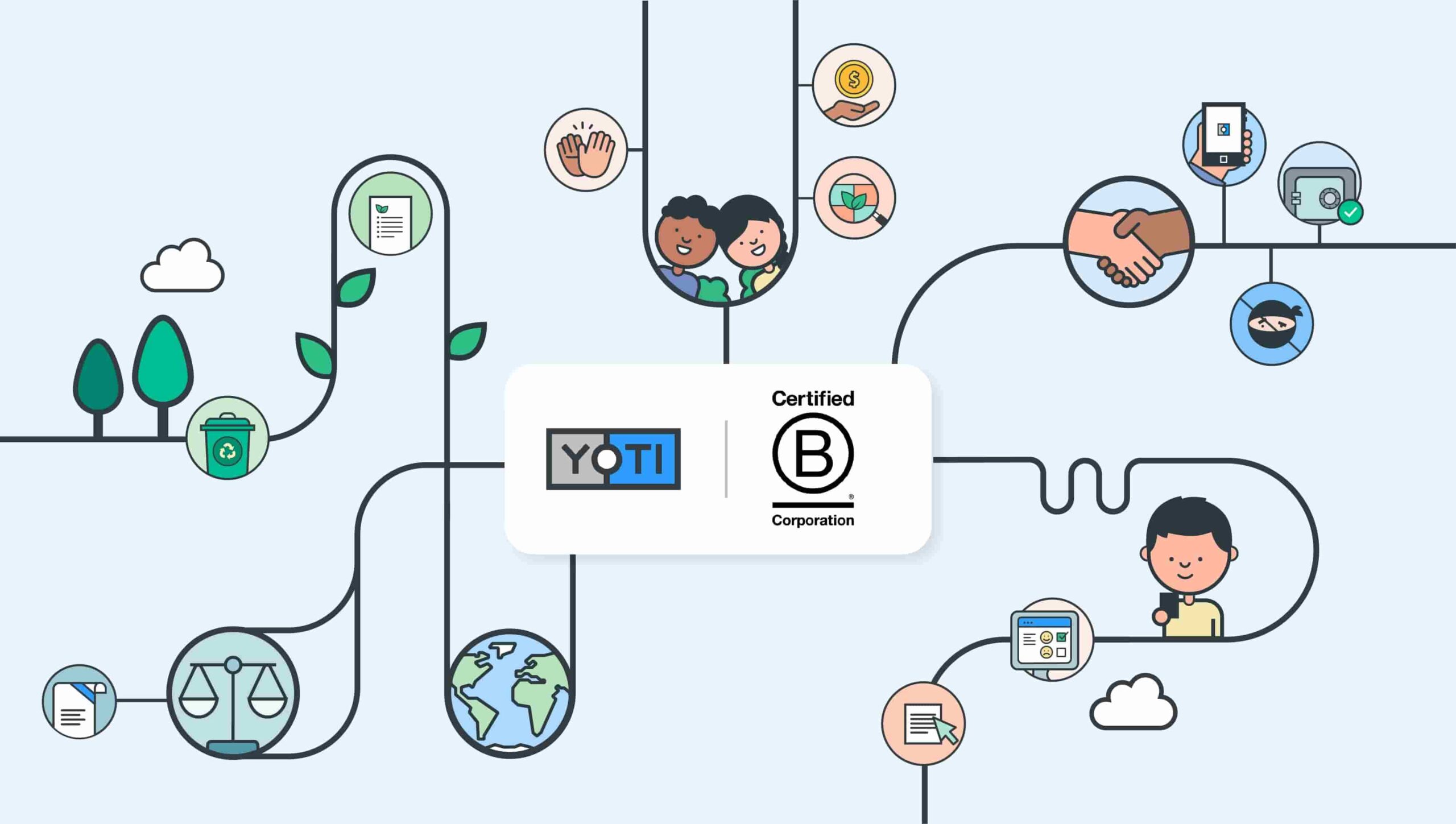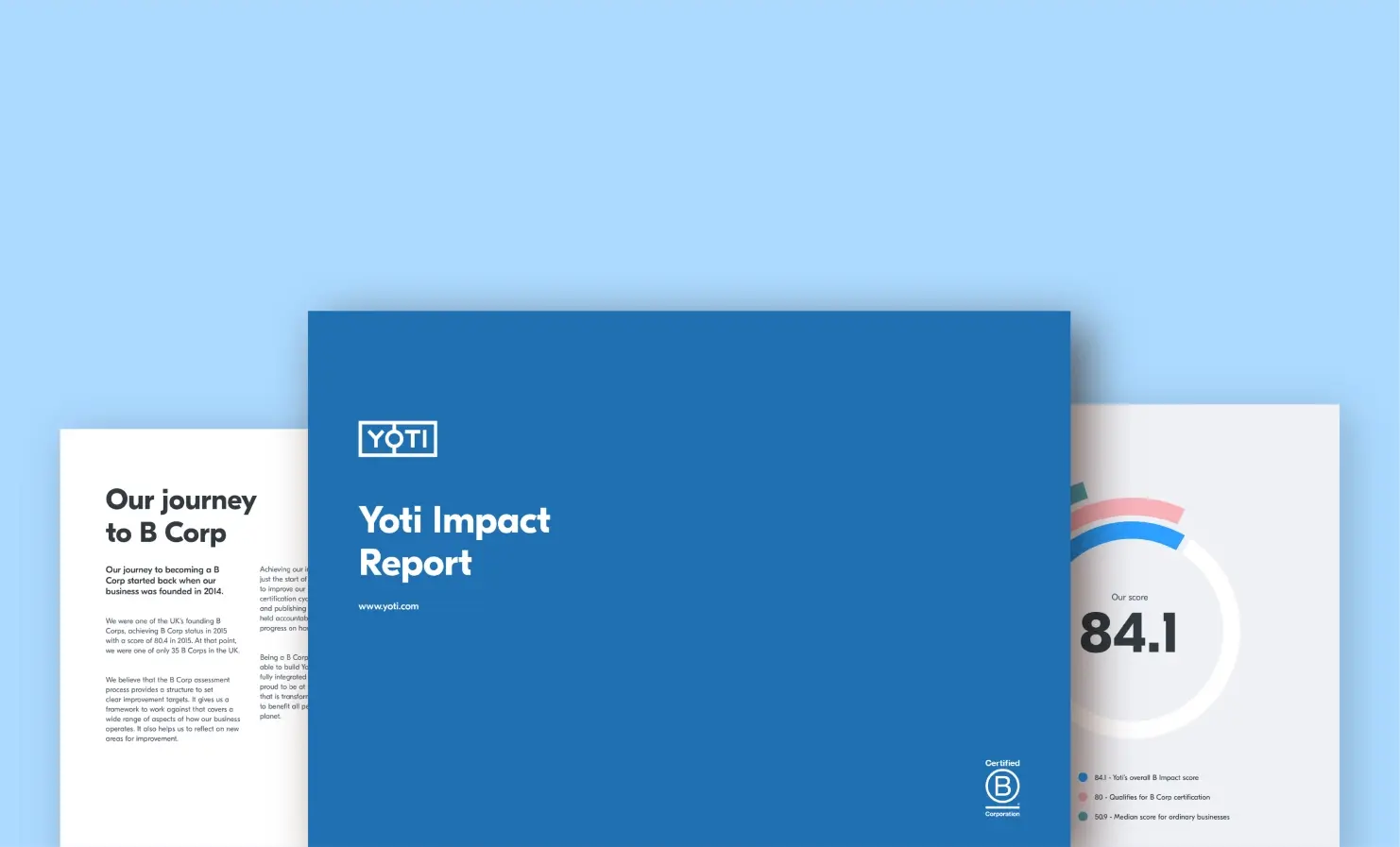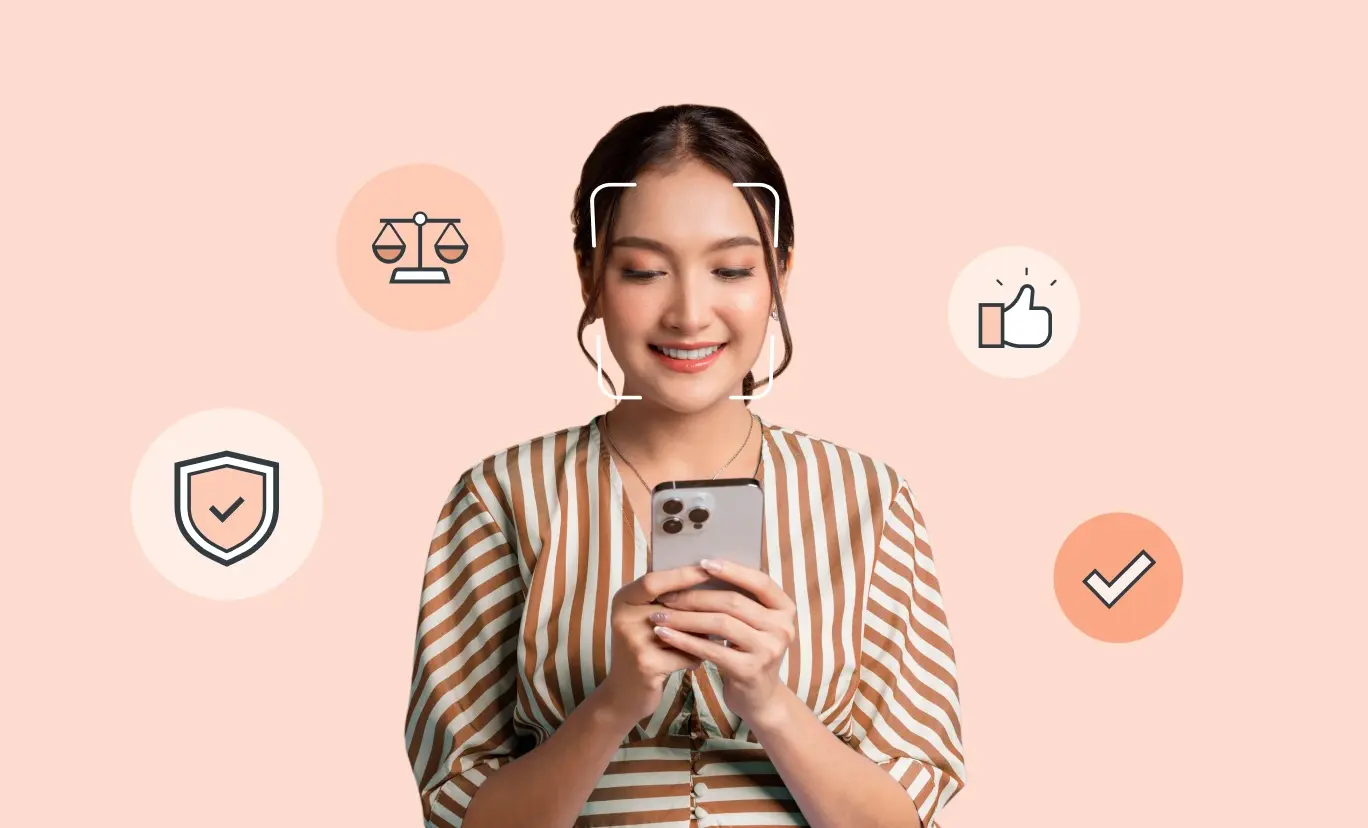
What’s a B Corp?
B Corporations (or B Corps) are leaders in the global movement for an inclusive, equitable, and regenerative economy. The ‘B’ in B Corp stands for ‘benefit’. As such, B Corps must continually seek out ways to benefit all people, communities and the planet.
B Corps work to transform the way that business is done. Instead of focusing solely on making money, B Corps look to balance profit with purpose.
When did it all begin?
Our journey to becoming a B Corp started back when our business was formed in 2014. We achieved B Corp status in 2015 which made us one of the UK’s founding B Corps, something we’re still incredibly proud of. But becoming a B Corp isn’t a one-time thing – companies must recertify every three years. So to retain B Corp status, we’ve had to uphold and improve our practices, policies and processes.
What does it mean to be a B Corp and how does it work?
Certifying to be a B Corp is a comprehensive and rigorous process. Aspiring B Corps must have their processes verified by B Lab, which oversees certification.
Organisations are measured against over 200 criteria and must score more than 80 points on the B Impact Assessment (BIA) to become a B Corp. Businesses are assessed in five key areas: governance, workers, community, environment and customers.
Alongside the BIA, B Corps must make legal changes to their corporate governance structure. These changes make us legally accountable to all stakeholders – workers, communities, customers, suppliers, and the environment – rather than just our shareholders. They also ensure that we continue to practise stakeholder governance, even after capital raises and leadership changes.
Here’s a snapshot of what we’re doing to deliver impact above and beyond profit:
Governance
From the start, we knew that in the complex world of digital identity, we would come up against some difficult ethical questions. To tackle this, we built a strong ethical framework that provides guidance and accountability for our actions. Our seven ethical principles guide everything we do.
We also have a Guardian Council, made up of external independent experts who act as a moral voice for the company. Internally, our Ethics & Trust Committee aims to bring a common sense viewpoint to a wide variety of ethical challenges faced by the company. They also consider the reputational and societal impact of Yoti’s decisions.
In addition, we’re accountable to a number of external bodies. We are a member of the WEF Global Coalition for Digital Safety and the WeProtect Global Alliance. We’ve undertaken independent audits via the Age Check Certification Scheme and have signed up to the Better Business Act.
Workers
We’re lucky to have a dedicated team of over 400 employees, all working to build the world’s trusted identity platform. And we know that to get the best out of people, we need to support them. Work-life balance is very important to us. So for most roles, we accommodate flexible working requests and hybrid working.
To encourage personal development, we also support our team with any relevant training. We do this by covering the cost of the training and/or providing our employees with paid time off to attend it. Additionally, everyone is given five fully-paid Selfie Days. These can be used for personal development, volunteering or charity events.
Community
We’re fully committed to supporting UN Sustainable Development Goal 16.9 – providing a legal identity for all. Around 1 billion people globally have no official proof of identity. As such, we offer our digital identity solutions for free to registered non-profits and socially-focused organisations around the world.
Looking beyond identity, our team has dedicated 475 hours of their time volunteering for charitable causes. As a company, we’ve also committed to giving 1% of revenue and 2.5% of profit to the Yoti Foundation.
Environment
Within our workplace, we have policies to ensure that we have effective water conservation practices, an environmental management system (EMS) and an environmentally preferable purchasing (EPP) policy. We also have a facility-wide recycling programme and ensure that we dispose of hazardous waste responsibly.
We’re part of the cycle to work scheme and encourage our team to use public transport to commute to the office.
Our e-Signing technology helps businesses and people cut down on how much paper they use to sign documents. Our products also allow identity verification requirements, such as right to work checks, to be completed digitally. This reduces the need to photocopy, print and post copies of identity documents.
Customers
We strongly believe that access to a legal identity is a fundamental right. For this reason, our app is, and always will be, free to users. We want to ensure that privacy-preserving technology is accessible to all globally. Therefore, we offer age checks through our Digital ID app for free, to any business. This removes any cost barriers businesses might face when verifying the age of users.
In line with our ethical principles, users are in control of their data. They always consent to share their data and have full visibility over what data they are sharing, and who they are sharing it with.
We have a commitment to making identity verification and all of our products accessible. To do this, we’re striving towards achieving WCAG AA compliance.
So what’s next?
We are delighted to be amongst over 6,000 certified B Corp companies who are going beyond doing business as usual.
But we know the work doesn’t stop here. Even though we’ve just received our recertification, we know there’s still so much more we can do.
Being a B Corp means that we’re transparent about how we do business. So, if you’d like to read more about what we do, keep an eye out for our latest impact report. In the meantime, you can check out our official B Corp score on B Lab.



